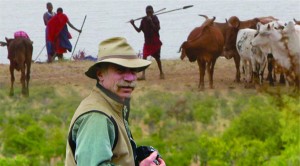
Purdue Distinguished Professor
Biological Anthropologist
pwleslie@unc.edu
919-962-1594; 919-445-0415
Alumni Building; Murray 204A; 3202-G
Research Interests
Human population ecology and demography: population-environment interactions; ecological and evolutionary perspectives on reproduction; biosocial determinants of fertility; environmental influences on reproductive function; modeling fertility decisions and reproductive strategies; historical and genealogical demography; interaction among social, demographic, and genetic structures of human populations; Sub-Saharan African pastoralism: causes and consequences of changing livelihood patterns; cultural and biological responses to environmental fluctuations and uncertainty; East Africa
Specializations
Human ecology, environmental anthropology, human population biology, demographyResearch Background
Leslie has studied the demography and reproductive ecology of nomadic Turkana herders in northwest Kenya as part of a long-term multidisciplinary study of the regional ecosystem. A principal focus of this project has been the biological and behavioral consequences of seasonal and longer term environmental fluctuations. His current work entails another collaborative project to study the demographic, social, health, and environmental changes associated with new land use patterns in the vast savanna lands of East Africa, with an eye toward how these changes are affect the viability of households and communities, and the implications for biodiversity and wildlife conservation. With support primarily from NSF, Leslie and his collaborators are now studying the environmental and socioeconomic causes and consequences of livelihood diversification (especially adoption of agriculture and labor migration) of Maasai communities in northern Tanzania, which are part of the social-ecological system embracing some of Tanzania's iconic national parks. This work probes the relationship between patterns of response to constraints and opportunities associated with conservation areas and land use policies and to environmental fluctuations and extreme events on the one hand, and the resilience of the social-ecological system on the other. It will also contribute better integration of evolutionary perspectives (evolutionary ecology, behavioral ecology) with current work on resilience and complex adaptive systems.
Education
PhD, Pennsylvania State University, 1977; MA, Pennsylvania State University, 1972; BA, Bucknell University, 1970
Current Courses
- ANTH 897 – ENVIRONMENT, POPULATION & WELLBEING (F, 9:05 AM – 11:35 AM)
- ANTH 897 – ENVIRONMENT, POPULATION & WELLBEING (F, 9:05 AM – 11:35 AM)
